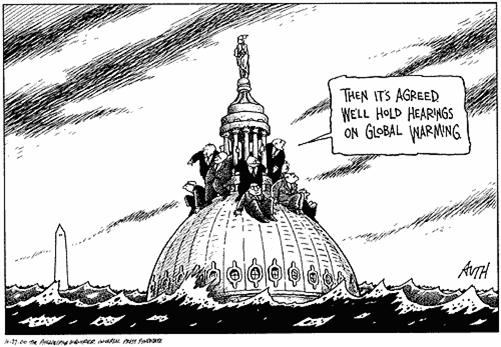New SF
Gray Panther Group:
Committee for Life on the Planet

Committee for Life on the Planet
Almost every day brings more bad new to anyone concerned about the future of the earth and life on it as we know it. The Artic ice is melting, species going extinct, weather patterns changing drastically, pollution even in Antarctica—all this happening faster and with worse consequences than even the most knowledgeable scientists predicted a few years ago. Did everyone see in the Chronicle the ghostly picture of the amazing Yangtse River Dolphin, said to be a “national treasure”? Now indeed the Dolphin is only a ghost.
The
question is, what can we as Gray Panthers, and some of us as grandparents,
do, individually and collectively, to slow down, mitigate, educate about,
or protest the inaction around this most unprecedented looming disaster?
Recycling cans won’t be enough at this point. To explore these questions,
we hope to form a Committee for Life on the Planet. Maybe we should name
it after the Dolphin. The first meeting will be at 11:00 AM on Wednesday,
February 14. Please join us and let’s brainstorm.
Act NOW to Stop Global Warming
Daffodils blooming in Vermont in December, New Yorkers outside in their shirtsleeves in January, bears coming out of hibernation before their food supply appears—will every year from now on be “the warmest year on record”?
Any species that is around today, including our own, has already survived
catastrophic climate change. The fact that a species has survived such
a change, or even many such changes, is no guarantee, however, that it
will survive the next one….Over the past two million years, even
as the temperature of the earth has swung wildly, it has always remained
within certain limits: The planet has often been colder than today, but
rarely warmer, and then only slightly. If the earth continues to warm
at the current rate, then by the end of this century temperatures will
push beyond the “envelope” of natural climate variability.
Meanwhile, thanks to us, the world today is a very different—and
in many ways diminished—place. International trade has introduced
exotic pests and competitors; ozone depletion has increased exposure to
ultraviolet radiation; and many species have already been very nearly
wiped out, or wiped out altogether, by overhunting and overharvesting.
Perhaps most significantly, human activity, in the form of farms and cities
and subdivisions and mines and logging operations and parking lots, has
steadily reduced the amount of available habitat.—Elizabeth Kolbert
(2006). Field Notes from a Catastrophe, pp. 86-7.
Small changes in average global temperature can cause huge environmental changes. 20,000 years ago, ice covered much of North America and the Alaskan-Siberian land bridge was 1,000 miles wide because of lower sea levels; average global temperature was only 10°F less than it is today. As CO2 levels rise, so does global temperature. When CO2 levels double, as they are expected to by mid-century if their present rate of increase continues, global temperatures are predicted to rise by as much as 8°F, causing massive flooding in low areas, drought, and species loss. We Must Demand Action Now!
The Heat Is On
“The
average surface temperature of earth has increased more than 1 degree
Fahrenheit since 1900 and the rate of warming has been nearly three times
the century-long average since 1970….Drawing on research on past
and present climate shifts and computer simulations, many climate experts
say that without big curbs in greenhouse gas emissions, the 21st century
could see temperatures rise 3 to 8 degrees, weather patterns sharply shift,
ice sheets shrink and seas rise several feet.”—The New York
Times website, January 16, 2007
NY Times review of Elizabeth Kolbert's Field Notes from a Catastrophe